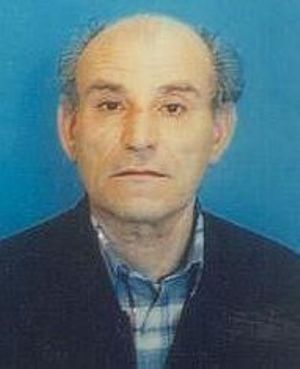Daniel Comboni
Comboni Missionaries
Institutional area
Other links
Newsletter
In Pace Christi
Manzi Gaetano
Fr. Gaetano Manzi was born at Quindici, in the province of Avellino, on 1 November, 1939. His adventure as a missionary and follower of Comboni began when, coming from the diocesan seminary at Nola, he entered the Gozzano novitiate. There he took his first vows on 9 September, 1961, and went to the scholasticate at Venegono. Having already done some courses in theology, he managed to finish his studies in 1964 and join the Comboni group – the largest in the history of the Institute – who were ordained in Verona in 1964.
During his theological studies, Fr. Gaetano showed a great ability in reflection, synthesis and memorisation. He was therefore asked by his superiors to go to Rome to study for a licentiate in moral theology at the Urbanian University.
In July, 1967, he was sent to Burundi. After some months studying the culture and the Kirundi language, he went to Butara and then to Gisanze. The history of Burundi is marked by both tragedy and triumph. The struggle for independence, which finally ended in 1962, left feelings of conflict and misunderstanding within the people of Burundi. It was because of this that the main problem of the Church was to promote peace and concord especially between the Tutsi people (12%), the Hutu (85%) and the Twa (3%). The events which followed between the years 1962 and 1973 were not free of violence, massacres and divisions. The Comboni Missionaries had begged the bishops to take action in favour of peace, harmony and respect for human life. It is estimated that, in 1972, 200,000 people, mostly Hutus, were massacred in Burundi. This tragic situation affected Fr. Gaetano very deeply and he immediately decided to make common cause with the persecuted, the poor and the excluded. So, in 1973 he left for Rwanda and the diocese of Butare, to devote himself to the assistance of the refugees and to reflect upon the new sort of engagement to which the Comboni Missionaries should be committed in order to be faithful to the charism of their Founder. When, in 1977, the Comboni Missionaries were expelled from Burundi, Fr. Gaetano felt that his presence had no longer any meaning and requested a Sabbatical which he spent in Rome.
He was then sent to the Congo and became one of the major experts in matters concerning the Great Lakes region of Africa whose languages he learned. He had a pastoral experience in the parish of Ango (Bondo diocese), later moving to Kisangani where he taught philosophy at the inter-diocesan seminary and finally going to the parish of Tadu (Isiro diocese). From 1988 to 1989 he took a second Sabbatical which he spent in Italy. Returning to the Congo, he asked permission to undertake an experience of insertion at the service of the poorest of all, the street children called “shege”. He rented a house in a poor quarter where young boys with no fixed abode could go to have a wash and launder their ragged clothes. Fr. Gaetano took care of them, treated their sores caused mostly by malnutrition, administered medicine and was always available to listen to anyone knocking on his door. He had no television but only a small radio to listen to the news. In obedience to his superiors, he would spend one day a week at the provincial house.
That was how Fr. Gaetano spent the last years of his life, never leaving the poor quarters, even if he moved house frequently. His final residence was at Barumbu, in the parish of Saint Raphael. Amongst the poor he had lived the tragic events of the war of conquest of 1996, with the fall of the Mobutu regime and that of 1998 which saw the Congo divided up to the time of the Sun City Peace Treaty in South Africa (2004). These were events which caused millions of deaths in the Africa of the Great Lakes – more than five in the Congo alone – bringing to the capital hundreds of thousands of people and causing an extreme increase in poverty. Fr. Gaetano posed the question as to how the Institute and the Congolese Church should respond to this situation.
At times he was considered by both superiors and confreres as “a problem to be solved”. Instead, Fr. Gaetano was a prophet. He was a far-seeing man and involved himself in the concrete life of every day as a Christian and as a missionary. This, of course, meant living an uncomfortable life. Apart from a small bedroom and a shower, he had no other commodities. For food, he ate little and made all he had available to the poor and the least of the place where he lived.
Fr. Gaetano died as he lived – poor – on 6 June, 2011, surrounded by the grief of the “shege” and the poor whom he had always helped and served with charity.
Fr. Eliseo Tacchella, the provincial superior, speaking at his funeral, defined Fr. Gaetano as a man who lived totally in faith, hope and charity. It seemed impossible that he could live such a life of insecurity, poverty and isolation. To the amazement of all, for twenty years, right up to his death, he shared the life of the poorest and most abandoned. Not all his projects and initiatives came to fruition but, nevertheless, he never turned back.
(Fr. Tonino Falaguasta Nyabenda)
Da Mccj Bulletin n. 249 suppl. In Memoriam, ottobre 2011, pp. 84-91.

